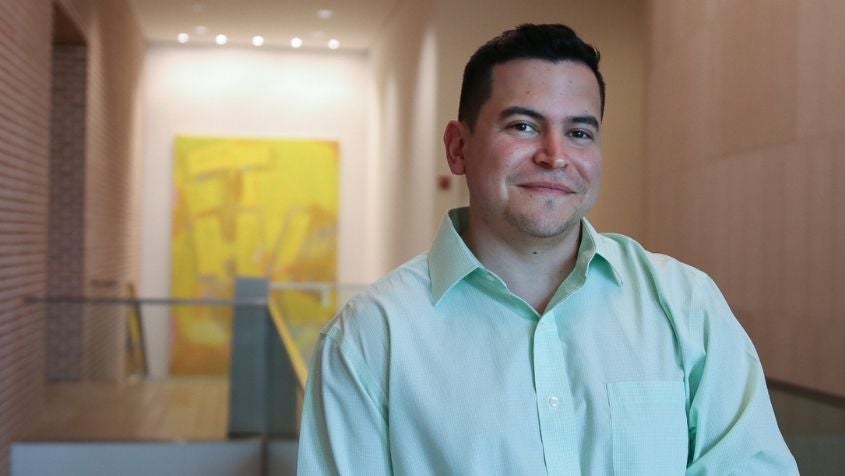Eric Molina earned a Ph.D. in bioengineering from Rice after defending his doctoral thesis this summer, but he’s not quite done with school.
Eric is a student in the Baylor College of Medicine Medical Scientist Training Program (MSTP), a combined M.D./Ph.D. degree program that allows students to pursue research under the auspices of the Rice University Bioengineering graduate program, or any of the Baylor College of Medicine graduate programs. Now having earned his Ph.D., Eric is heading back to Baylor to complete his medical training.
The combined degree program emphasizes continuity between clinical and basic science curricula. It provides training that can lead to significant scientific contributions in academic and corporate research, clinical practice or a combination of both.
“The program does a good job of engaging us with clinical problems and clinical questions, so we always have that clinical slant to the types of research we partake in and in the types of research questions we generally pursue,” said Eric. “The integration is what I really looked for when I chose an M.D./Ph.D. program, and it’s something Baylor does exceedingly well.”
While at Rice, Eric worked in the lab of Antonios Mikos. Mikos is the Louis Calder Professor of Bioengineering, as well as a member of the MSTP Executive Committee for the MSTP. Eric cites meeting the legendary Rice bioengineer as one of his inspirations for pursuing training in the field.
“An important aspect of the natural sciences is that you seek knowledge for the sake of knowledge, and that’s a very beautiful thing. However, I thought that bioengineering as a field would be a little more applied, and it has been,” Eric said. “It was a good mix of learning scientific methodology as well as applying engineering principles and solutions to biological and medical problems, which I thought, philosophically, is just something that I had to take the opportunity to do.”
Eric’s doctoral research focused on tissue engineering principles applied to the fabrication of biomaterials to study cancer in more native-like microenvironments. This enables researchers to study the way cancer in different microenvironments is affected by the elements that make up the area surrounding a tumor.
In preparation for his thesis defense, his lab mates helped review his presentation over the course of three hours, providing feedback and suggestions to perfect it.This experience highlighted one of the aspects of training he will miss the most: the Rice bioengineering community.
“Having the ability to go and just get the opinions of my laboratory members on experiments, on the directions of projects, and in turn helping them... [exhibits how] teamwork is so organic here,” Eric said. “Especially in labs like mine, where people just get along, and people want to help each other and want to see each other succeed. They’re phenomenal people who want the best out of the goodness of their hearts. That’s something that is sometimes hard to find in science.”
A San Antonio native, Eric received a B.S. in biology from Stanford University in 2011, then interned at West Coast biotech firm, Genentech, for a year before beginning the MSTP. He has earned numerous accolades in his time as a Rice-Baylor graduate student, including receiving the prestigious Ruth L. Kirschstein National Research Service Award in 2016 and serving as the president of the Latino Medical Student Association - National.

